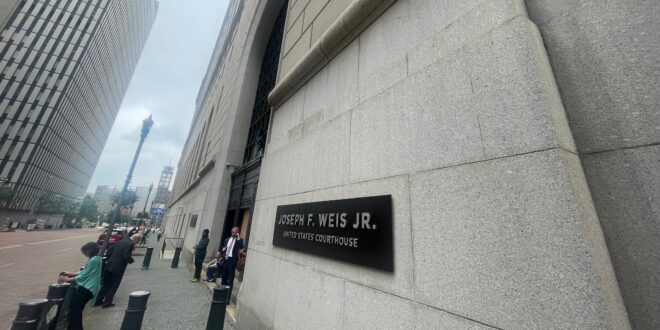Pittsburgh Synagogue Shooter’s Lawyer Claims No Culture Endorses Killing Jews
A lawyer representing Robert Bowers, the gunman who murdered 11 Jewish worshippers in a Pittsburgh synagogue, argued during closing arguments in the trial that there is “no culture” that supports the killing of Jews. This statement was made in an attempt to prevent Bowers from receiving the death penalty after being found guilty on all 63 counts he faced for his antisemitic attack in October 2018. The trial is currently in the phase of determining whether Bowers’ crimes and intent merit the death penalty.
Contending the Source of Antisemitism
Bowers’ defense team has asserted that his actions were influenced by his schizophrenia, which they believe should exempt him from the death penalty. Defense attorney Michael Burt spent a significant portion of his closing argument rejecting the prosecution’s claim that the shooter’s antisemitism was not delusional but rather a result of his affiliation with white supremacists. The defense emphasized that expressing antisemitic views is not a normal or cultural ideology.
Condemning Public Figures and Far-Right Movements
The defense attorney’s argument also addressed the issue that openly advocating for the murder of Jews is considered unacceptable in mainstream political discourse. However, it is important to note that antisemitic conspiracy theories, like the belief in “replacement theory” that Jews are orchestrating an invasion of immigrants, have gained popularity among certain far-right movements. Examples of public figures echoing these beliefs, such as former Fox News host Tucker Carlson, were mentioned in the trial.
Implications of the Shooter’s Mental Illness
Burt argued that the shooter’s persistence in his antisemitic beliefs, even while in custody, is evidence of his mental illness. A forensic psychiatrist, Park Dietz, who testified during the trial, claimed that the defendant’s antisemitism was not originated from his own mind but rather rooted in existing ideologies. The prosecution contested the defense’s assertion that Bowers is schizophrenic and argued that his antisemitism aligned with those of white supremacist movements.
The Jury’s Deliberation
The jury finished their deliberation for the day, and they will reconvene on Thursday to determine if the defendant’s crimes and intent meet the threshold for the death penalty. The trial will proceed to the next phase if they do, where the defense will present mitigating factors against the death penalty. These factors may include the hardships the shooter has faced in his life. If the jury decides the crimes and intent do not qualify for capital punishment, a mandatory life sentence without parole will be handed down by Judge Robert Colville.
Looking Ahead and Closing Arguments
If the trial proceeds to the next phase, it could take weeks and involve testimonies from those affected by the shooting, including relatives of the deceased and members of the Pittsburgh Jewish community. The defense and government lawyers have debated how much emphasis should be placed on the fact that the shooter will receive a mandatory life sentence without parole at minimum. Ultimately, it will be up to each juror to decide the defendant’s fate, and a single juror’s decision against the death penalty would result in a life sentence.
Prosecution Remembers the Victims
During the proceedings, Assistant U.S. Attorney Soo Song reminded everyone of the crimes committed by the shooter, including the names of each victim. She urged the jury to find the defendant eligible for the most severe penalty, the death sentence, for each intentional killing.
 Mind Uncharted Explore. Discover. Learn.
Mind Uncharted Explore. Discover. Learn.



